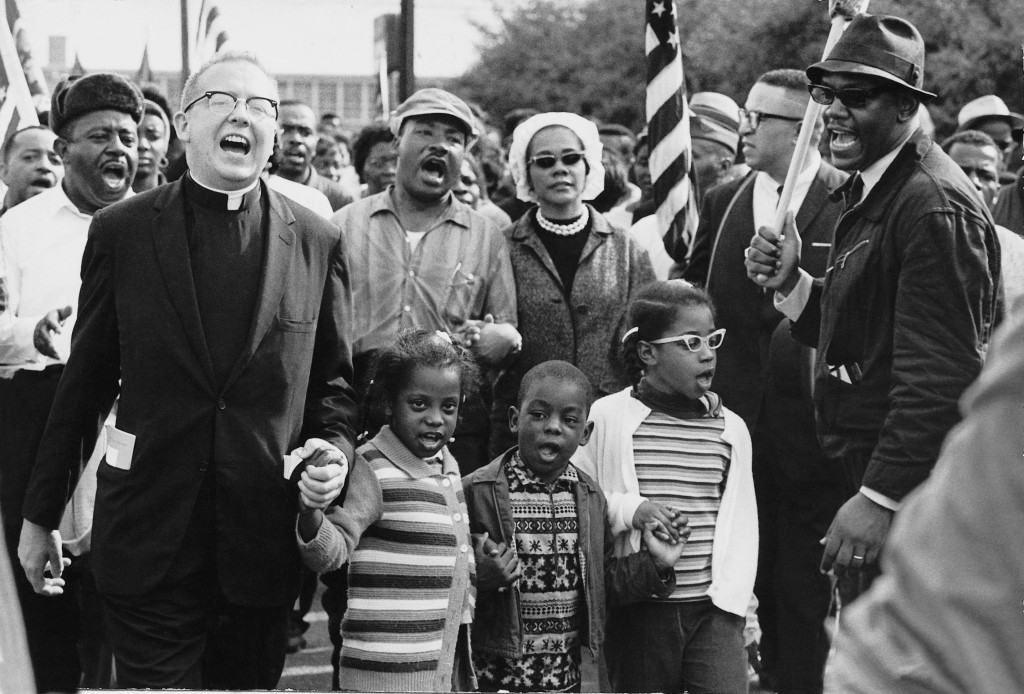
Music is a multi-purpose tool. It can help you get over a breakup or resuscitate happy childhood memories or even neurologically bring you out of an Alzheimer's-induced haze. There's something about listening to music, singing along to it and creating it that is primal, a full body experience; the senses wake up, hearts are laid out, we feel alive.
During particularly trying times throughout history, this musical power has been harnessed in the form of protest songs that express pain, foster a sense of unity, allow the space to process, and hold up the promise of a better tomorrow. Spirituals like "Sometimes I Feel Like a Motherless Child" and "Go Down, Moses" gave voice to the oppression of 19th century slave life. Billie Holiday's "Strange Fruit" pushed back against lynching in the 1930s. And the civil rights movement of the 1960s brought out songs about terrible injustice (Bob Dylan's "The Lonesome Death of Hattie Carroll") and the hope that it would end ("We Shall Overcome" and Sam Cooke's "A Change Is Gonna Come").
The events in Ferguson over the past few weeks have reminded us of the ugly reality of our country: we have made progress, but we still have a long way to go and plenty left to sing about. Inspired by Michael Brown's murder and the aftermath, J. Cole and Lauryn Hill are separately continuing the tradition of protest music.
In "Be Free," Cole pairs goosebump-inducing lines like "All we wanna do is take the chains off / All we wanna do is be free" and "...ain't no gun they can make that could kill my soul" with witness testimony from Michael Brown's friend. Warning: this will make you cry.

